
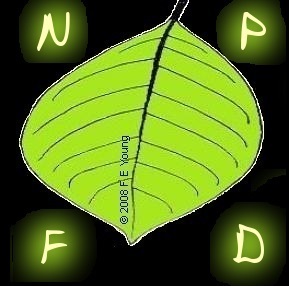



☰ Menu
Species Key
For the MSIE and MSEdge version of this page please click here.
This species key was written by Herman Sleumer in his 1980 monograph Flacourtiaceae pages 183-184 and 192. I have updated it to include the two new species discovered since Lozania nunkui and Lozania glabrata.I have to be honest I don't like writing this key (and haven't before now) because I don't have confidence in the limited number of herbaria material reviewed to write the previous monograph (??? herbaria) and that a many non Lacistema serrulatum specimens have serrated leaves. I now have access to at least 500 virtual herbaria! Which has been beneficial as I have located far more isotypes, syntypes and synonyms than previously stated. Once I have viewed hundreds of specimen images online I will be able to make a more informed judgement. But for now I am converting Sleumers' key for this page.
I will be writing a Lucid Central interactive key as well as this traditional version. To use the interactive key you will need to make sure your desktop machine and/or mobile device has Javascript turned on. Take a look at this link for details on how to do this.
How to use this key :
Firstly are you sure the specimen you have is a member of Lacistemataceae? I recommend using the Royal Botanic Gardens, Kew : Neotropical Flowering Plant Families Key to check.Then read each couplet (pair of choices) and decide which is the best choice for your specimen. Then click on the link and you will be taken directly to the next couplet. You might wish to write down your choices as you go so if you go wrong you can revisit your journey through the key to discover where you went wrong or you could use the back button instead.
NOTE: This key relies on your specimen having an inflorescence with open flowers and a least one fruit plus the use of a hand lens or microscope.
A... Which genera?
1. Flowers
:tightly packed together in the mature inflorescence and the flowers are sessile (attached directly to the inflorescence stem) : B... Lacistema species : go to letter B
occur singly in mature inflorescence and the flowers are not sessile : C... Lozania species : go to letter C
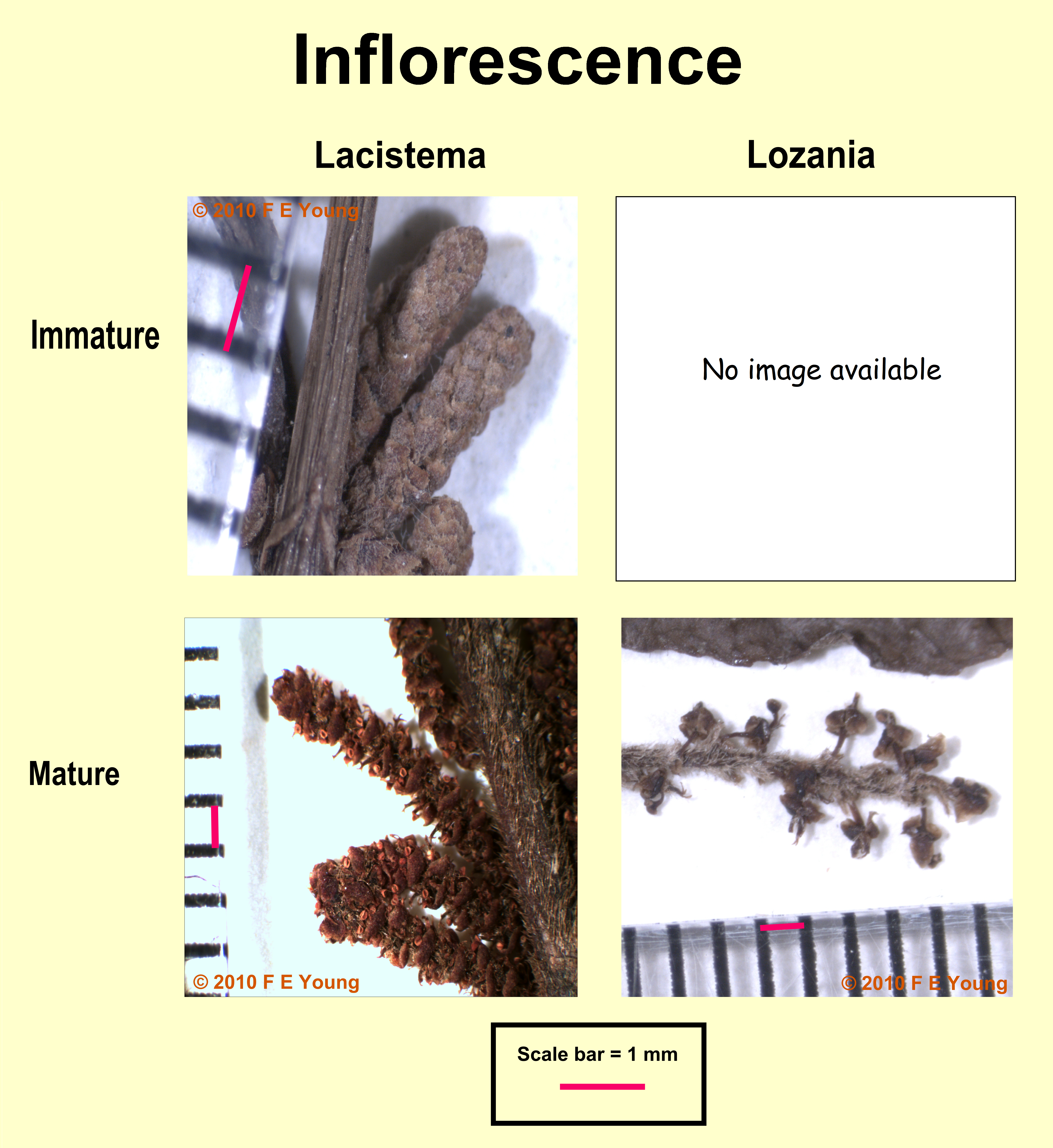

B. Which section of Lacistema :
the 3 stigma have no style or very short style..... Section Lacistema go to number B.1
the 3 stigma are on top of a narrow and cylindrical style..... Section Stylolacistema go to number B.2
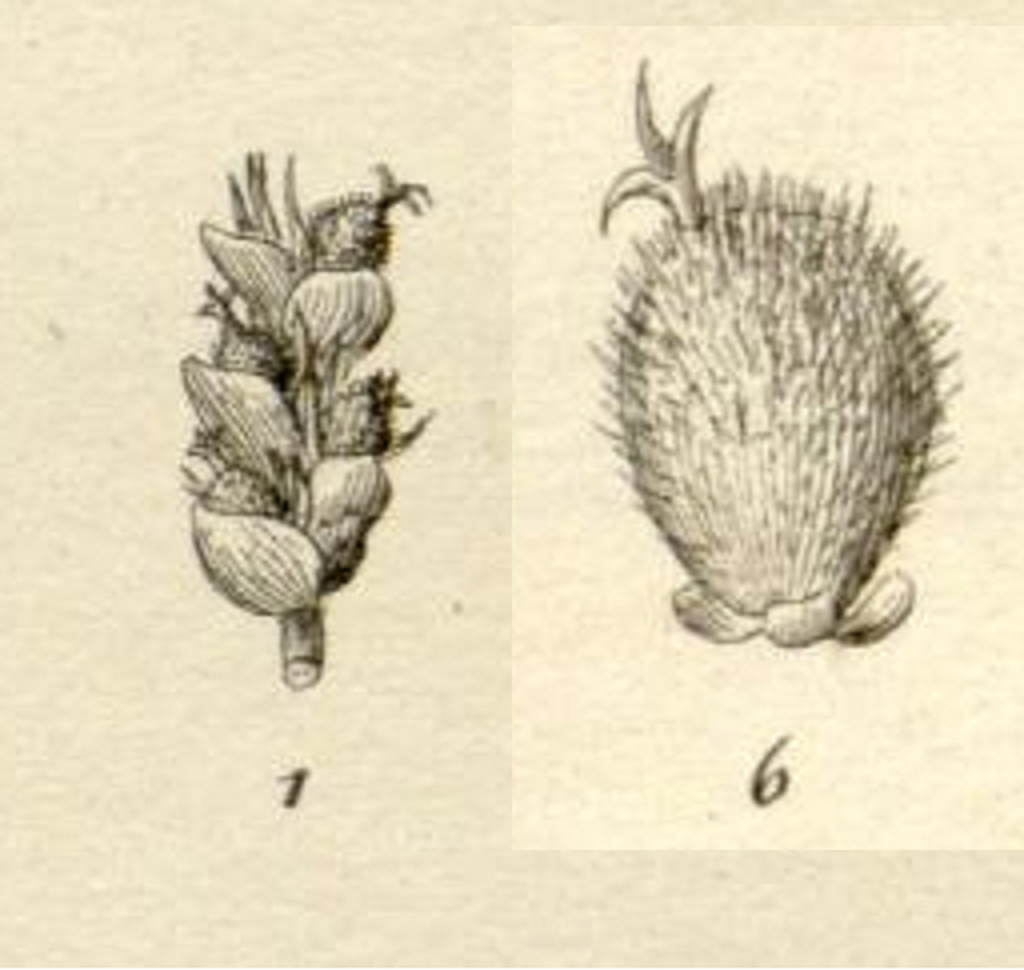
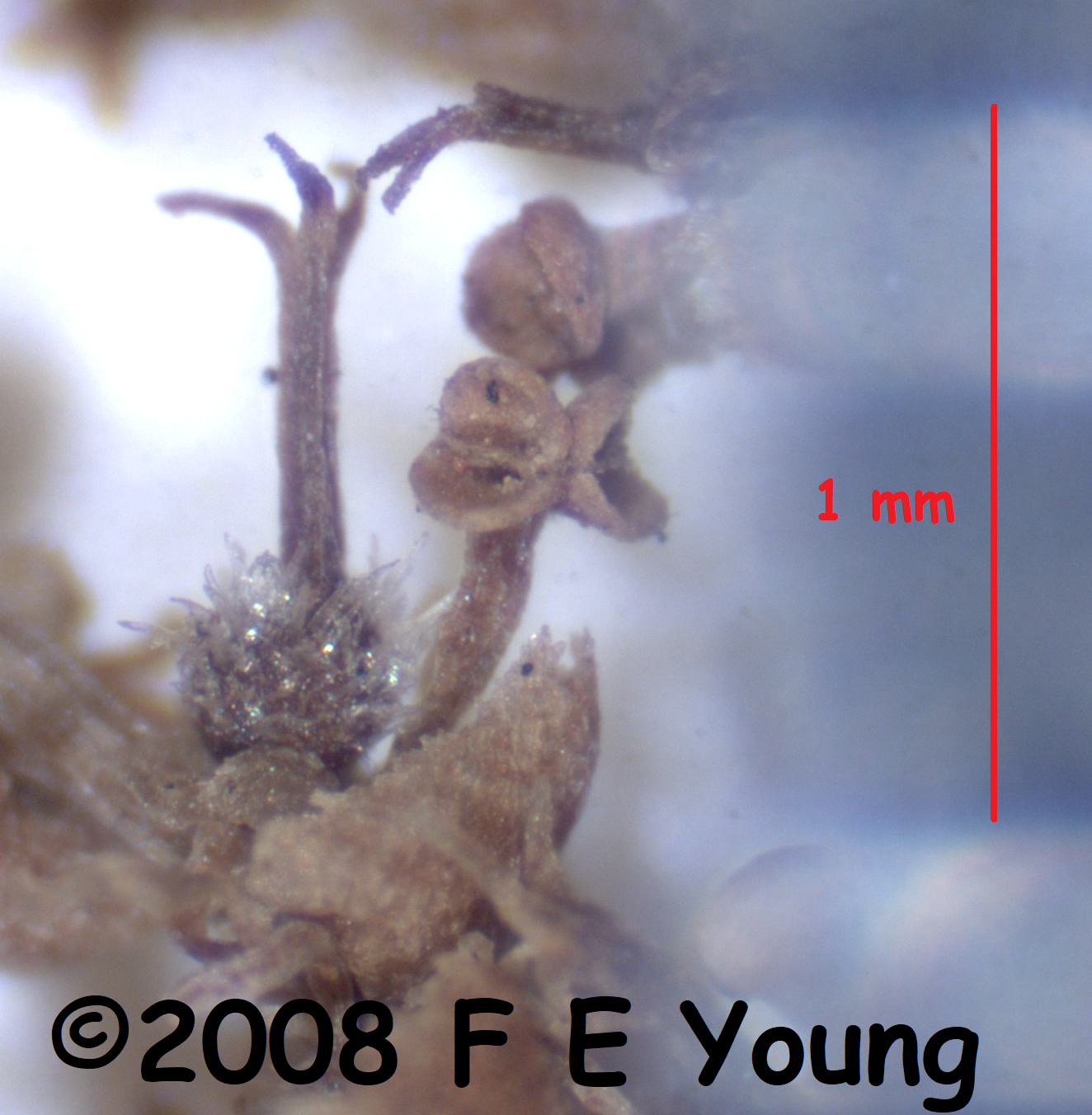
B.1... Section Lacistema.....
3. Leaves :
large - (13.0-) 17.0-35.0 cm in length; (4.0-) 6.0-12.0 cm wide; Veins are impressed in dried specimens (raised up on the leaf under side)..... go to number 4
smaller; Veins are not impressed in dried specimens..... go to number 5
4. The hairs and leaves :
hairless including the twig tips. Leaves leathery texture with (8-)10-12 secondary veins..... Lacistema krukovii
hairs are short-pubescent. Leaves papery texture with 7 pairs of secondary veins..... Lacistema macbridei
5. Hairs :
ovary and fruit hairs soft and flexible loosely arranged to densely short-pubescent..... Lacistema nena
ovary and fruit hairless..... go to number 6
6. Leaves and inflorescence :
margin entire (not toothed, notched or divided) and rarely wavy to subserrulate. Flower spikes 1.0 cm long or longer when fully developed..... Lacistema aggregatum
narrower subcrenate to serrate. Flower spikes 4.0-6.00 mm in length when fully developed..... Lacistema hasslerianum
B.2... Section Stylolacistema.....
7. Leaves :
hairy - densely pubescent to tomentulose all over the underside and soft to the touch (go to number 8)
hairless or appears so to the naked eye; may have short appressed hairs all over the underside - use a hand lens or microscope..... go to number 9
8. Flowers and fruit :
when flowers fully open the stem can be seen. Fruit is subovoid-trigonous in shape and hairy..... Lacistema grandifolium
when fully open the flowers cover the stem so it cannot be seen. Fruit is obovoid-subglobose, subtrigonous, initially hairy then hairless..... Lacistema pubescens
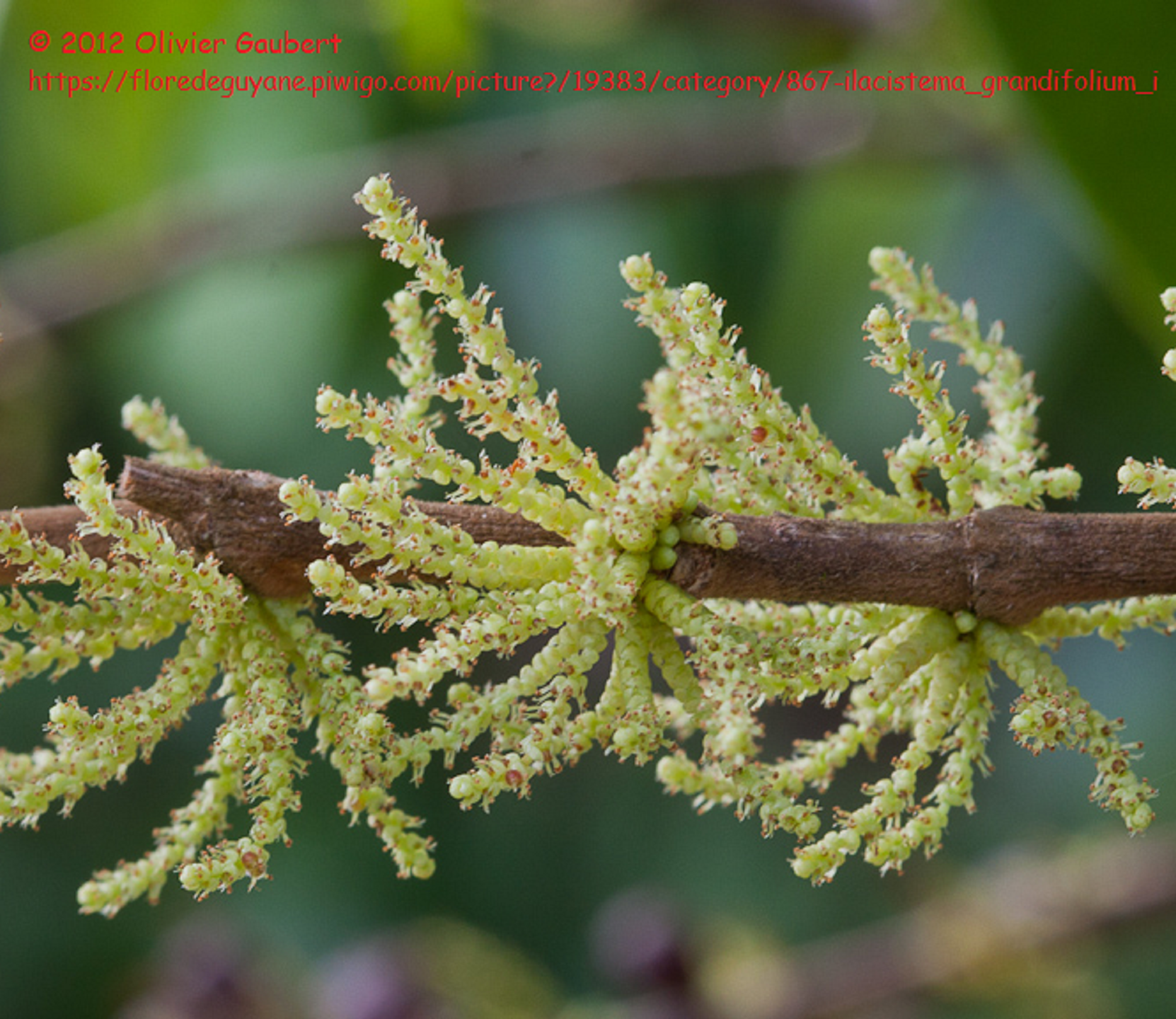
9. Leaves :
serrated margin from the apex down 2/3rds of the leaf..... Lacistema serrulatum
margin mainly entire (not toothed, notched or divided)..... go to number 10
10. Twigs :
hairless at tip..... go to number 11
loose to densely appressed hairs at tip..... Lacistema polystachyum
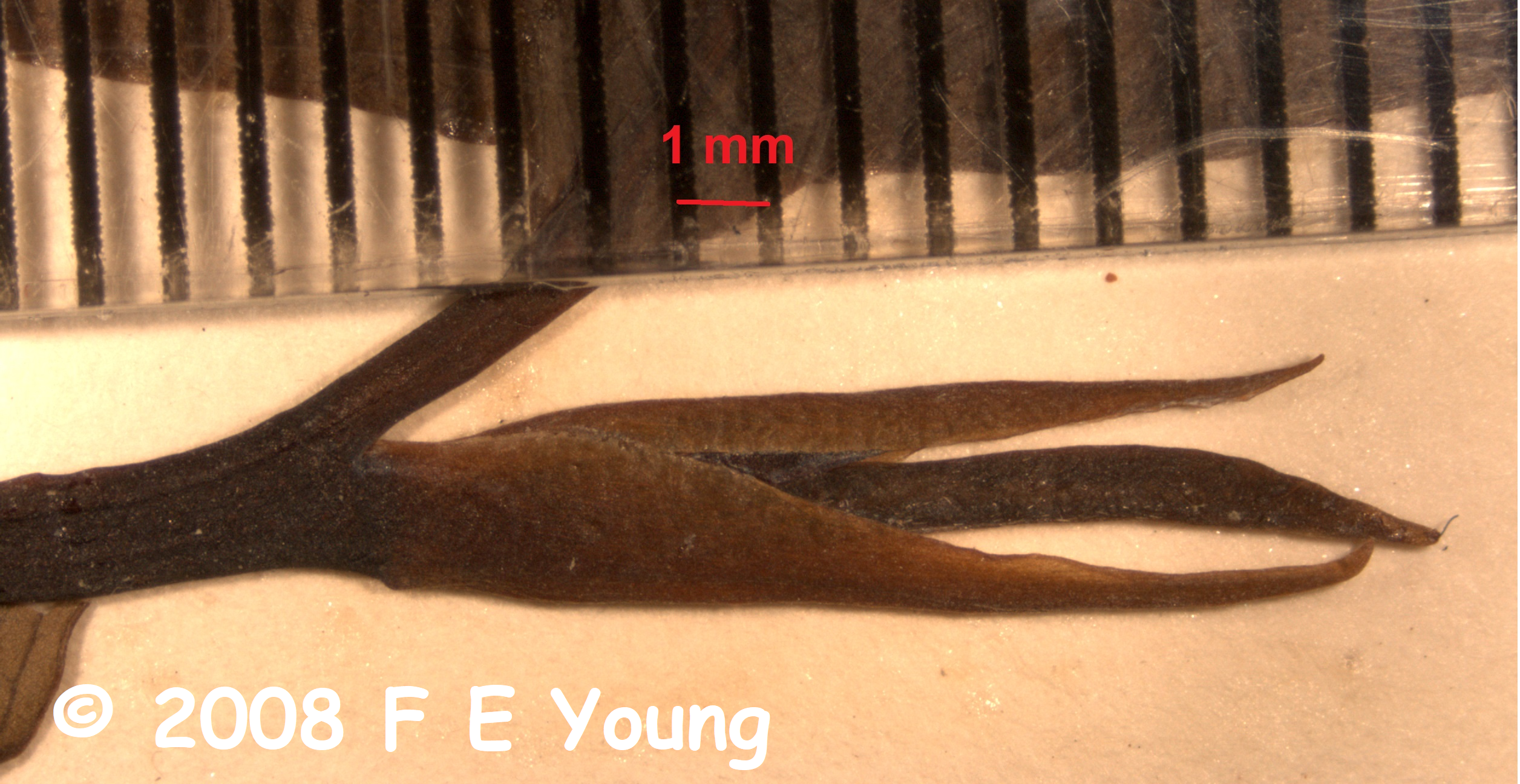
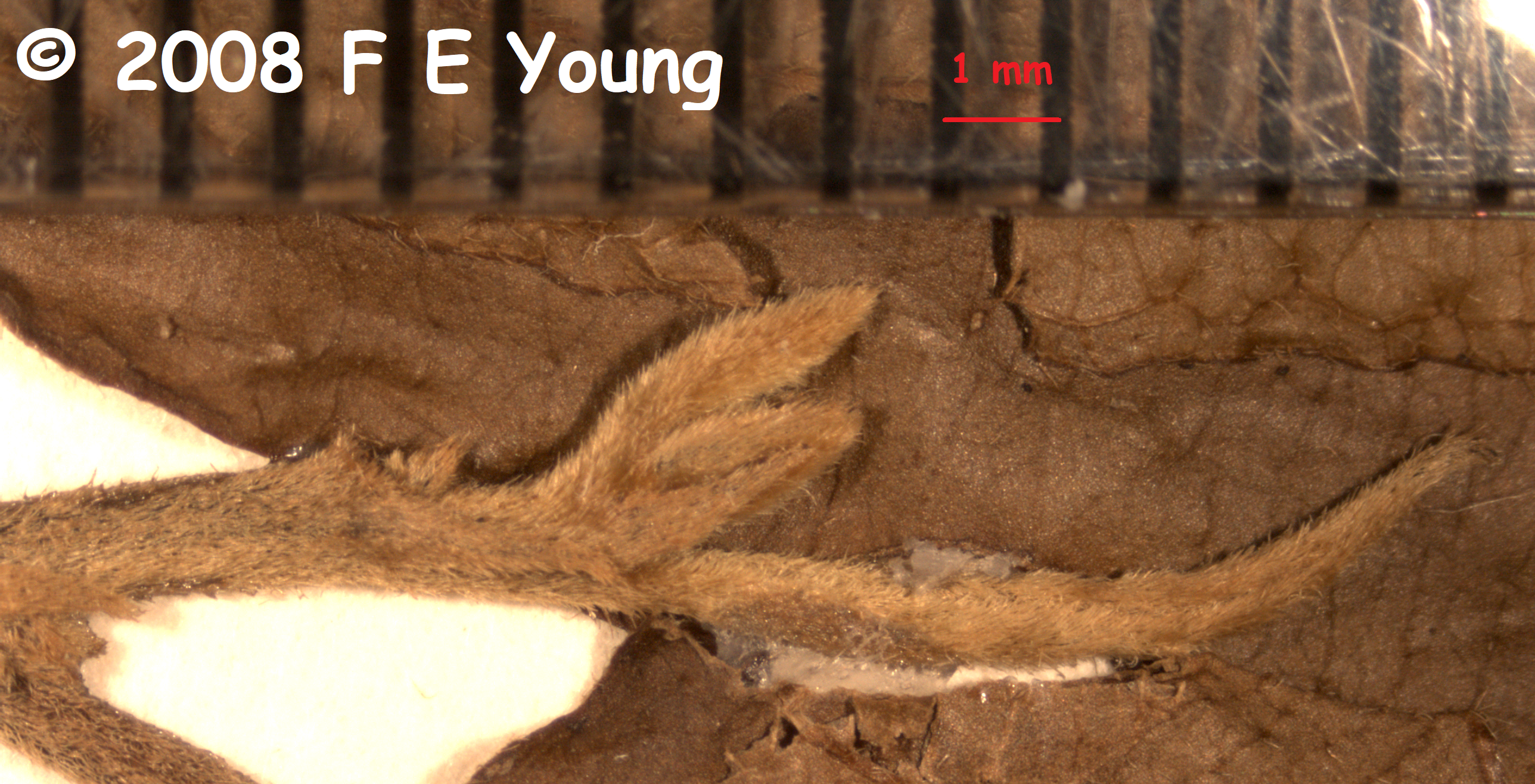
11. Leaves :
chartaceous to subcoriaceous hairless or scattered fine very short appressed hairs on the under surface..... Lacistema robustum
thin-chartaceous with longer appressed hairs along on the main vein (midrib) on the lower surface..... Lacistema lucidum
C... Lozania species key.....
12. Sepals :
number 5(-6)..... Lozania nunkui
number 4..... go to number 13
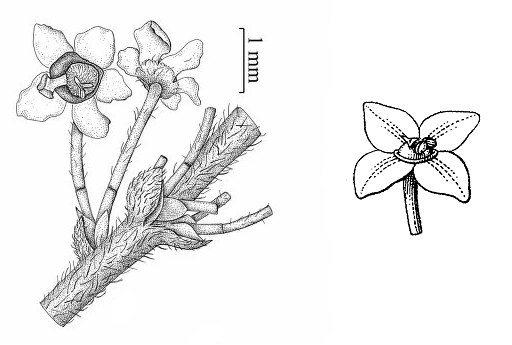
13. Leaves and stamen :
hairless; the filament deeply split to appear like it has two stamen. Lozania glabrata
hairy; single stamen topped with two bifurcating anthers..... go to number 14
14. Fruit :
6.0 - 8.0 mm in length..... Lozania klugii
up to 5.0 mm in length..... go to number 15
15. Filament, stamen and seed :
1 to 2 times longer than the anther; Stamen shorter than the ovary; Seeds ellipsoid in shape, 2.2-2.5mm in length and 1.2-1.5 mm wide..... Lozania mutisiana
4 to 5 times longer than the anther; Stamen as long or longer than the ovary; Seeds ovoid, circa 3.0mm in length, 2.5 mm wide..... Lozania pittieri
